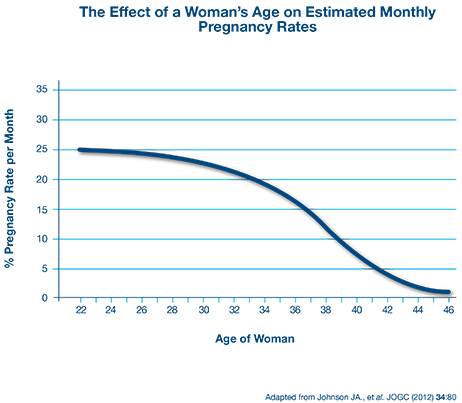How long it might take and how age affects fertility
If you don’t get pregnant straight away, it doesn’t mean you have a problem. Most healthy couples will conceive within one year1 of trying for a baby. So if it takes a while, there’s generally nothing to worry about.
Age plays a role
Only a third of couples will conceive in the first month of trying and if you’re under 35 and in good health it’s perfectly natural for it to take up to a year. So if you have been trying to get pregnant for longer than a year, it is recommended that you seek medical opinion. If you are over 35 then, perhaps try for just 6 months before getting help. And if you’re 40 or over it is advisable to go and see your doctor as soon as you decide to try for a baby.
The reason the advice above varies by age, is that your age is a key factor in likelihood to get pregnant. A woman’s natural fertility will already start to decline in her late 20’s due to the fact she has fewer eggs and the quality of the remaining eggs is likely to be lower than when she was younger.
After 35 years old, egg depletion is at a critical level and after 40 years old the chances of achieving pregnancy are very much lower. This is true not only for natural conception but also for assisted conception.
According to the Human Fertilisation and Embryology Authority, about 95% of women aged 35 who have regular unprotected sexual intercourse will get pregnant after three years of trying, but for women aged 38, only 75% will do so.

The graph above shows the effect of age on the declining chances of conception.
- 1 NICE Clinical Guideline CG156 (2013)
